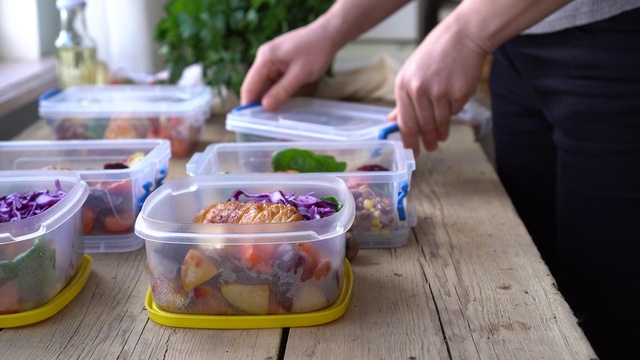Help and advice on how to save money on your weekly food shop is easy to come by, but with the continuous rise in the cost of living, is there more you could do to cut back on food costs in 2023?
Making a list before you head to the shops, being savvy when it comes to the sales and the benefits of a loyalty card have been highlighted on our blog before. But with inflation at an all-time high, let’s explore other ways you could save over the coming months.
How much are we spending on food in 2023?
Whether you’re a on your own or part of a large family, there’s no denying that the amount we spend on food and drink is one of the most substantial outgoings we have. But with the cost of even everyday essentials like milk, eggs and bread rising in 2022, it’s likely that every household is going to be hit by inflation in the coming months.
The cost of food shopping in 2023:
- It’s predicted that households will face an average of £788 a year on their food bills alone in 2023.
- Recent data from the Office for National Statistics shows that food and non-alcoholic beverage prices rose by 16.4% in the 12 months to October 2022.
- The average annual food cost for a typical UK household is around £5,924 heading into 2023 (based on the average 2.4 people per household), including nearly £300 spent on non-alcoholic drinks.
- The average weekly food and drink (not including alcohol) cost for the typical UK household is around £114 , up around 15% from a year ago.
- On average, we spend about £4,296 a year on food for home, and £1,628 on takeaways, restaurants, cafés, snacks, etc.
Saving on your food shop is easier than you think
So how can you avoid falling victim to the rising cost of the weekly food shop? Here are some of our favourite – less obvious – ways to cut back on food costs:
Utilise freezer space
If you find yourself with food that’s approaching the “use by” date and you don’t think you’ll be able to use it, you can make food last longer by freezing it instead of throwing it away. You’ll extend its life by at least three months, and you can freeze almost anything including milk, hard cheese, rice, and eggs. Make sure to wrap them well or use an airtight container.
If you’re a toast lover, then a great tip to make bread last longer is to freeze it as soon as you buy it. Just pop frozen slices in the toaster when you want them and toast as normal. The loaf of bread will last in the freezer for up to six months.
Keep your fridge organised
An unorganised fridge can easily lead to food being hidden at the back of the shelves and forgotten about. Keep your fridge tidy and make sure older food is near the front where it can be seen and not forgotten. This way you’ll be able to see at a glance what needs using up. You can buy containers for the fridge to help keep different groups of food together.
Get familiar with expiration dates
UK households throw out between £250 and £400 worth of food every year. That’s 6.7 million tonnes of food going to waste. What’s worse is that a lot of the food we waste is perfectly safe to be eaten. Knowing the difference between ‘best before’ and ‘use by’ can help you to significantly reduce the amount of food you throw away, but there are lots of other ways you can help to reduce waste and save money including:
- using food that’s going to go off before newer food
- freezing leftovers before they go off
- only buying what you need
When you’ve got food that’s looking a little less than perfect, for example, broccoli, you could use it to make soups that you can then freeze.
Bulk-buy the basics
If you’re going to be cooking more, then it pays to keep some essentials in stock. Ingredients such as tinned vegetables, beans, rice, pasta and lentils, tinned tomatoes, tomato puree, stock, garlic, olive oil, salt, pepper, and herbs and spices can often make up the bulk of a healthy meal, and typically have longer shelf lives and lower price tags than other ingredients.
If you tend to buy brand names, try buying stores' own brands when it comes to basics. You probably won’t notice the difference once they’ve been cooked into a recipe, but the price difference can be significant.
Drop down brands
Whether you’re used to the Finest collection or supermarkets own brands, dropping down just one brand level could save you a huge amount of money overall. Try it with some of your favourite go-to items to see if you can notice a difference in quality and taste. If you can’t then make the swap permanent and save on some pennies whilst you’re at it.
Use supermarket apps
Alongside supermarket apps that can help you to save money, there are a wide range of apps you can download for free that are designed to help you cut costs on your food shop. Whether it’s cashback on items, money off or in-store deals you can grab ahead of anyone else, using these apps is usually effortless and could help you save on every shop you do.









